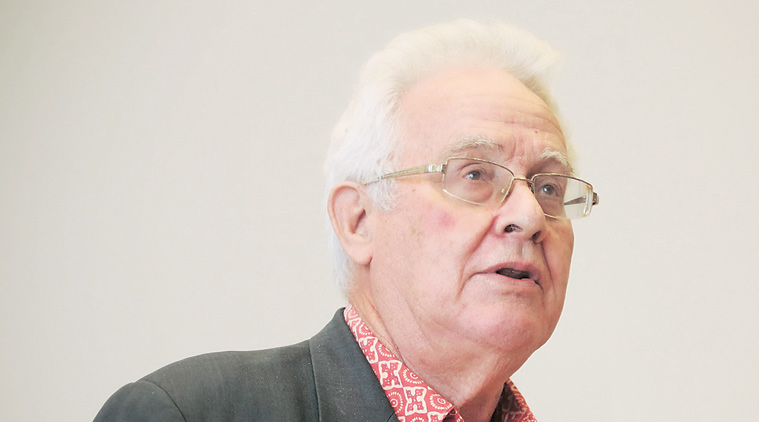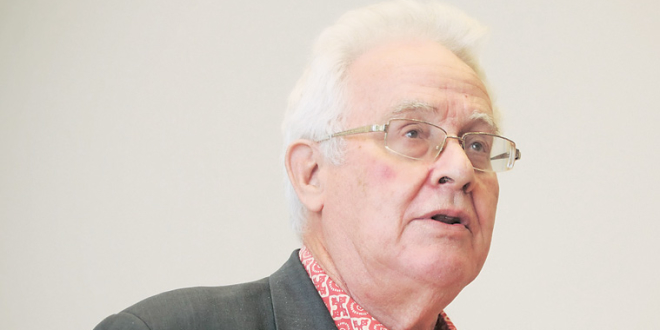

From Indonesia comes the sad news of the passing away on December 13, at just under the age of 80, of Benedict Anderson, a figure who had a great impact on modern Asian studies, as well as historical studies of nationalism, anarchism and a whole host of other subjects. At the time of his passing, Anderson was professor emeritus at Cornell University, where he had spent a large part of his career, and from where he retired in 2002. In the years that he was there, Cornell succeeded Yale as the preeminent place in the US to study Southeast Asia, and Anderson’s role in this transformation was central. Though never ostentatious in his claims regarding public engagement, Anderson was very much a public intellectual in the best sense, both in his location in the West, and in the Southeast Asia he studied with passion and affection. A man of great warmth and unexpected humour, Anderson left a considerable mark on the countries he studied most closely — Indonesia, the Philippines and Thailand — but also on many others such as India, with which he had a more passing relationship.
Benedict Richard O’Gorman Anderson was born in August 1936 in Kunming, China to Anglo-Irish parents. His father worked as a colonial official, and the young Anderson eventually left China for a brief stint in California, before going to Ireland and the UK, where he completed a bachelor’s degree in classics at Cambridge University in 1957. Unusually for someone of his generation, background and early Marxist inclinations, he decided after his BA to leave the UK for the US, where he enrolled at Cornell for a PhD entitled “The Pemuda Revolution: Indonesian Politics, 1945-46”, which was eventually completed in 1967, under the supervision of George Kahin. Kahin’s book, Nationalism and Revolution in Indonesia (1952), now somewhat forgotten, was considered a classic in its time, and he and his work seem to have had a formative influence on Anderson, along with other scholars such as Ruth McVey.
It was together with McVey that Anderson produced the first work that brought him public attention, namely the so-called “Cornell Paper” of 1966, which analysed and effectively demolished the official Indonesian version of the violent events of 1965 that eventually led to the seizure of power by General Suharto. Though meant for internal circulation, this paper reached a wider audience and inevitably caused Anderson’s official banishment from Indonesia, a state of affairs that lasted until 1999, a year after Suharto left power. Anderson became an important figure as a consequence in questioning the legitimate status of the so-called “New Order” of Suharto, a highly unpopular position to take during the Cold War. The lack of access to Indonesia also eventually led Anderson to work elsewhere in Southeast Asia, most notably in Thailand and the Philippines. But the powerful early essays on Indonesia, along with his book, Java in a Time of Revolution (1972), established Anderson as an up-and-coming force by the mid 1970s. They also defined what seems to have been a tense relationship with the mandarin figure of Clifford Geertz, who had preferred to maintain a discreet silence on the political situation in Southeast Asia in the late 1960s and early 1970s, whether in respect to Indonesia or Vietnam. Anderson’s subtle riposte to Geertz may be found in such places as a short but effect review of the latter’s book, Negara.
Needless to add, Anderson then moved on to a larger stage, notably with the publication of Imagined Communities (1983). This important extended essay was part of a larger examination by thinkers and historians on the left of the phenomenon of nationalism that they had somewhat neglected until then, and it showed Anderson’s capacity both to generalise and theorise, and to extend his empirical gaze far beyond Southeast Asia. With its pithy title and attractive propositions on such subjects as nationalism and “print capitalism”, this work crossed both geographical and disciplinary boundaries with ease. Whatever one thinks of the merits and defects of the works of Ernest Gellner, Anthony Smith, Eric Hobsbawm or Partha Chatterjee on the subject, there is little doubt that it was Anderson’s work that acted as the real lightning rod for debates on the question. He followed it up with The Spectre of Comparisons (1998) and Under Three Flags (2005), as well as other works that returned him increasingly to Southeast Asia. In recent times, he had completed a memoir entitled A Life Beyond the Boundaries, which will appear from Verso, a publisher with which he and his younger brother Perry Anderson have been closely linked.
It was through Perry that I first met Ben in Los Angeles. But I had heard much about him far earlier, notably from a mutual friend in Cornell and Paris, anthropologist James Siegel. However, meeting Ben in person was disarming; he was quiet, often self-effacing (especially before his brother), but always with an ironic gaze and a twinkle in the eye. He visited Delhi for a lecture some years ago, struggling gamely with a serious injury to his leg. We spent a few happy days with him, examining everything from the current state of postcolonial studies, to the National Museum of Modern Art in New Delhi. It was then that I discovered he still travelled with his Irish passport, and that the “O’Gorman” in the middle of his name was much more than an affectation; it was an important part of his identity. Later, occasionally, and unexpectedly, he would send an email, to exchange a thought on anything from the work of Jim Scott, to publishing in India, to contemporary political events. He will be sorely missed.
![]()
Source: New feed






